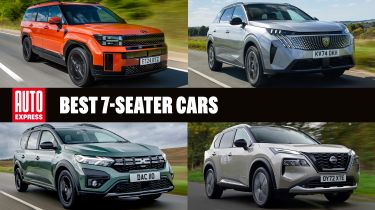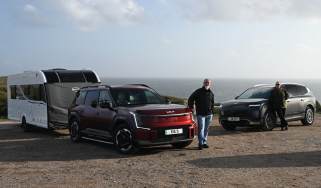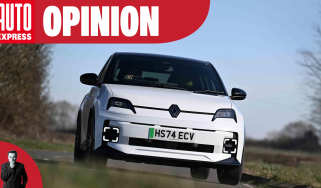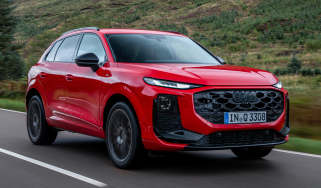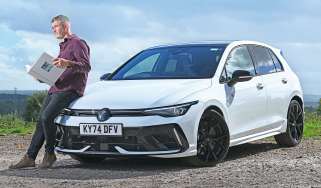Best 7-seater cars to buy 2025
We pick the best seven-seater cars for family life across a wide range of price points
Seven-seater cars are as popular as ever with large families, and there’s a wider variety than ever to choose from with both SUVs and MPVs up for grabs. Our expert road testers have extensively tested every seven-seat car on today's market and here, we round up the top 10 best seven-seater cars to buy in the UK right now, based on this thorough real-world testing.
The kind of seven-seater car you choose will depend to an extent on how regularly you plan on using the third row of seating and who those seats will be for. If you regularly carry six or seven passengers who aren't small kids, you'll really need a seven-seater with a good amount of space in those back seats - something few models can genuinely offer.
If, however, you only occasionally carry more than five people or some of your passengers are small children, this outright capacity may be less of an issue and one of the more compact seven-seat models may work. Boot space is also a key consideration as the amount of room for luggage in some three-row cars is severely restricted when a full complement of passengers is on board.
Beyond the big space questions, family car buyers looking for a seven-seater will also have a keen eye on safety provision, running costs and those extra practical design features that make life with an army of children that little bit easier. We've considered all of the above in assembling our list of the top 10 seven-seaters on sale today. So, if you’re in the market for a car that can carry a couple of extra passengers, look no further.
Compare the best 7-seater cars to buy
Our expert road testers rate every new car in the context of rival models that can do a similar job and be bought for a similar price. Below you can see our top 10 7-seater cars drawn from across the car market with their prices and star ratings side-by-side…
| Rank | Name | Prices from | Practicality, comfort & boot space rating (out of 5) | Overall Auto Express star rating (out of 5) | Fuel types | Max. WLTP combined efficiency |
| 1 | Dacia Jogger | £18,970 | 4.8 | 4.5 | Petrol, hybrid | 58.9mpg |
| 2 | Skoda Kodiaq | £39,000 | 5.0 | 4.5 | Petrol, diesel, plug-in hybrid | 691.5mpg |
| 3 | Hyundai Santa Fe | £47,890 | 4.5 | 4.0 | Hybrid, plug-in hybrid | 166mpg |
| 4 | Peugeot 5008 | £38,590 | 4.5 | 4.0 | Mild hybrid, plug-in hybrid, electric | 356.2mpg |
| 5 | Kia EV9 | £65,035 | 4.8 | 4.5 | Electric | 349 miles |
| 6 | Citroen Berlingo | £24,150 | 5.0 | 4.0 | Petrol, diesel, electric | 54.4mpg |
| 7 | Volkswagen ID.Buzz | £59,645 | 4.7 | 4.5 | Electric | 293 miles |
| 8 | Nissan X-Trail | £36,225 | 4.0 | 3.5 | Petrol, hybrid | 49.6mpg |
| 9 | Land Rover Defender | £65,755 | 4.5 | 4.5 | Petrol, diesel, plug-in hybrid | 106.2mpg |
| 10 | BMW X7 | £92,160 | 4.0 | 4.0 | Petrol, diesel | 36.2mpg |
1. Dacia Jogger
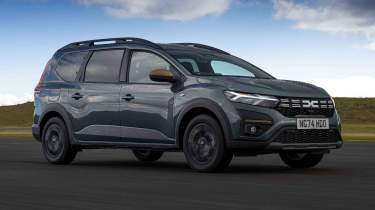
- Price from £18,970
- Best 7-seat car overall
The Dacia Jogger is nothing less than the most affordable seven-seater car on the market, and by a country mile too. At its lowest price point, you need to spend double to get the next cheapest model on this list.
The interior feels sturdy and up to anything you or your family can throw at it. It’s well equipped too, with an eight-inch touchscreen that’s easy to use, a rear-view camera and a leather steering wheel on some versions. Even with all seven seats in place, you’ll still have 220 litres of cargo space at your disposal, while the rearmost row’s spacious enough even for shorter adults, so it’s not a kids-only zone.
A pair of sensible engines, a 1.0-litre turbocharged triple and a 1.6-litre hybrid, mean running costs are low. Economy of nearly 50mpg in the turbo model and close to 60mpg from the hybrid, plus relatively low first-year tax and affordable insurance ratings all help the bottom line.
The performance won’t wow you, especially when the Jogger is fully loaded, but 0-62mph times in the 10-11 second range are far from insufficient. You’ll get a tad more wind and road noise than more sophisticated machines but the Jogger rides well (a long-ish wheelbase helps) and handles much like the Sandero supermini with which it shares a platform - so no major problems there.
“We particularly like the neoprene-style fabric inserts on the seats in the Extreme model that are more interesting to the touch than regular fabric. The surface is wipe-clean which should be useful for family life.” –Dean Gibson, senior road test editor, drove the Jogger in a seven-seater group test
In theory, the other cars on this page are Jogger alternatives, thanks to their seven-seat layouts… but realistically that’s only the case if you’re comparing a brand new Jogger with a several-year-old example of any of the others. Only the Citroen Berlingo (and other van-based MPVs) are close on price, albeit still far more expensive.
2. Skoda Kodiaq
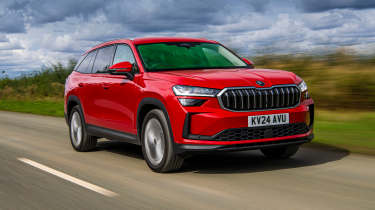
- Price from £39,000
- Best 7-seat plug-in hybrid
With solid build quality, a comfortable ride and excellent practicality, the Skoda Kodiaq is among the very best SUVs, and it’s available as a seven-seater.
The Kodiaq makes full use of its size for maximum versatility inside. That all-important third row isn’t quite adult-friendly but kids will be happy enough (they get outer armrests and some storage cubbies, too), and if you flip the seats into the floor, they not only fold flat but also leave an enormous 845-litre boot. Certainly as a five-seater, it’s very accommodating, while the logically-arranged interior means the Kodiaq is easy to live with.
A 1.5-litre mild hybrid engine kicks off the range, but as Skoda is one of increasingly few brands to offer diesel in this class, a pair of TDI engines are part of the Kodiaq’s appeal. Available in 150 and 193 horsepower forms (the latter with four wheel drive) they return around 50mpg combined. The Kodiaq iV plug-in hybrid is even more frugal and with a 6 per cent BiK rate, is the obvious choice for company car users.
All Kodiaqs are an absolute doddle to drive. Not exciting, and the ride isn’t perfectly smooth, but few cars of this type are so easy to get on with, with predictable responses to every control.
“Skoda’s ‘Simply Clever’ philosophy is perfectly suited to a car such as the Kodiaq – family-friendly features make it a useful accessory to family life.” – Dean Gibson, senior road test editor, road tested the Kodiaq in the UK
This is a busy old segment, the Kodiaq going head-to-head with everything from the Nissan X-Trail to the Ford Kuga, Toyota RAV4, and Volkswagen Tiguan. The Hyundai Santa Fe below is probably its closest rival though, and one the Kodiaq has already duffed up in a twin test, hence it finishing higher in this list.
3. Hyundai Santa Fe
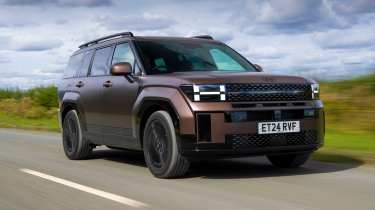
- Price from £47,890
- Best car for boot space
Much like the mid-sized Tucson, the latest Hyundai Santa Fe has taken a huge leap in terms of design, from generic to distinctive.
Like the Kodiaq above, the Santa Fe is fairly substantial, and the key upside of such a large car is the huge amount of cabin space on offer for both passengers and their luggage, enough to have the edge over the Skoda Kodiaq. If you don’t need to use all of the seats, the Santa Fe offers up to 1,949 litres of cargo capacity, but space is decent even for those in the third row, and access is easy, too.
There are hybrid and plug-in hybrid powertrains available. Opt for the plug-in hybrid variant and you’ll even be able to drive up to 38 miles on pure electric power, though this falls well short of the Skoda’s 75 miles. The regular hybrid Santa Fe versions are relatively parsimonious, with just over 41mpg for the two-wheel drive car, and a little under 39mpg with AWD.
Hyundai has prioritised ease of use and comfort in how the Santa Fe drives, though it’d be even easier without quite so many warning beeps and bongs. Thankfully, they’re pretty simple to turn off. Engines can get a little vocal under hard acceleration, but things calm down if you do.
“The Santa Fe’s boxy shape is very on trend right now, but more importantly, it provides a huge amount of cabin space for both passengers and luggage.” – Dean Gibson, senior road test editor, road tested the Santa Fe in the UK
The Kodiaq is an obvious rival, though the Kia Sorento is another option, being largely the same as the Santa Fe under the skin, with many of the same virtues and vices, but different styling. The Peugeot 5008 below is yet another option, with a very different style, and better economy in hybrid form.
4. Peugeot 5008
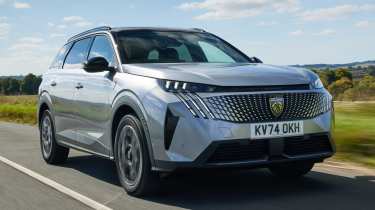
- Price from £38,590
Whether you choose the hybrid-powered Peugeot 5008 or fully-electric Peugeot E-5008, this seven-seater SUV is a seriously stylish machine both inside and out.
Provided that you can get along with Peugeot’s unusual i-Cockpit setup, the 5008’s cabin is a very pleasant and driver-focused place to sit. The twin screens look great and the tech is pretty easy to navigate (even if it is a little sluggish for our liking). It’s definitely an acquired taste though; not everyone will like the unique layout.
Space is pretty good in rows one and two, while the rearmost row will just about accommodate adults, and the 348-litre boot in seven-seat mode is generous.
Every version of Peugeot’s large SUV is pretty frugal, with even the mild-hybrid achieving over 50mpg on the WLTP combined cycle. The E-5008, meanwhile, has a class-leading claimed battery range of 415 miles, making it a real option for family use… if you can stomach the near-£49k price tag.
It’s no 205 GTI in the corners, but while the 5008 is not especially fun, Peugeot has wisely focused on comfort instead. It still keeps body movements in check but handles rough roads with composure (it’s better when loaded, too) and all versions have sufficient performance.
“The 5008’s starship looks are guaranteed to draw attention, but the interior design is the real star of the show. It features a 21-inch panoramic display that curves around the driver, while pools of ambient lighting illuminate the dashboard.” – Ellis Hyde, news reporter, road tested the 5008 in the UK
The 5008 competes in a busy segment even for seven-seaters; this class has basically taken over from MPVs as far as large family cars go. So you’re looking at models like the Skoda Kodiaq, Hyundai Santa Fe, and Nissan X-Trail, while for the E-5008, consider the Skoda Enyaq and Renault Scenic – though neither of those comes with seven seats.
5. Kia EV9
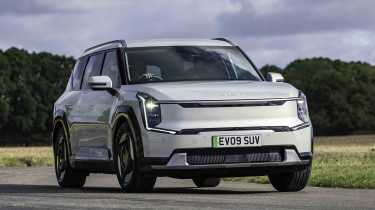
- Price from £65,035
- Best car for in-car tech
The Kia EV9 heralds a new styling direction for the brand, one that has been followed up with the smaller EV3, but the big news about this big car is that it’s a proper seven-seater electric vehicle.
It’s also a very well-equipped one: even the basic EV9 Air gets Kia’s Level 2 driving assistance, heated and ventilated front and second-row seats, an electric boot lid, a triple-screen layout including a pair of 12.3-inch screens, plus a wireless smartphone charger and 19-inch alloys. Front and middle rows are spacious but as is often the case, the third row is kids-only.
The car’s enormous size may benefit interior room but it does hamper manoeuvrability, in that parking can be a bit of a chore despite all the tech to help you. You’ll be forever sticking out of tight supermarket spaces, and the turning circle is quite large, too. The EV9 is happier at higher speeds, being smooth, stable and refined.
Kia claims up to 349 miles of range from the EV9 on a single charge, courtesy of a rather substantial 99.8kWh battery, and either single motor for rear-wheel drive, or twin motors and all-wheel drive. The latter is pretty brisk, with 378bhp and 0-62mph in 5.3 seconds… but do you really need that in a seven-seater?
“We crowned the Kia EV9 our Large Company Car of the Year at the 2024 New Car Awards, so that should give you some idea of how highly we regard this electric seven-seat SUV.” – Alex Ingram, chief reviewer, road tested the EV9 in the UK
In size and price the EV9 swings up beyond normal Kia territory and, as long as electric power isn’t a prerequisite, into the realms of premium seven-seat SUVs like the Land Rover Discovery and Volvo XC90. That said, you can still find electric, seven-seat SUVs if you try: the electric equivalent of the XC90, the Volvo EX90, fits the bill, as does the Mercedes-Benz EQB. The Volvo’s more expensive, the Mercedes smaller.
6. Citroen Berlingo
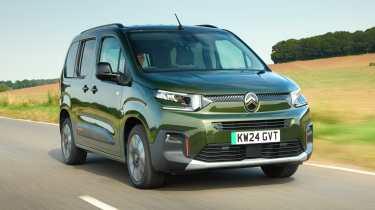
- Price from £24,150
- Best utility
The Citroen Berlingo might, in effect, be a van converted into an MPV, but the brand has been performing this trick for a while, and this seven-seater really appeals as a result.
The big advantage of being based on an actual van is that vans tend to be fairly pragmatic and practical, and most of this carries across to the passenger variant. Big windows mean visibility is tremendous, the middle row is wide enough for three separate seats (and is accessed through sliding doors), boot space is enormous as a five-seater (1,050 litres) and the third-row seats are a decent size too (and fully removable).
Diesel power is still on the table for that combination of easy refuelling and fill-and-forget range, but there’s a frugal 1.2-litre petrol, too. Opt for the fully-electric e-Berlingo and there’s really no better option that can offer pure-electric motoring and seven seats at the same price point, though a 168-mile maximum range is a bit behind the times.
It even drives okay. It’s not even that van-like, mainly because it’s based on a similar platform to some of Citroen’s regular cars. Ride and handling are good, and grip and brakes are both reassuring. Opt for the e-Berlingo, and the silence and smoothness add to the appeal.
“The Berlingo doesn’t have kerb appeal of a typical family SUV, but those with more sense than money should have it on their next family car shortlist.” – Ellis Hyde, news reporter, road tested the Berlingo in the UK
Vans with windows have taken over from traditional MPVs for those who aren’t interested in an SUV, and the Berlingo has some competition – including in-house rivals such as the Peugeot Rifter and Vauxhall Combo Life, which are largely identical under the skin. Others to consider are the Volkswagen Caddy and its own badge-engineered equivalent, the Ford Tourneo Connect.
7. Volkswagen ID. Buzz
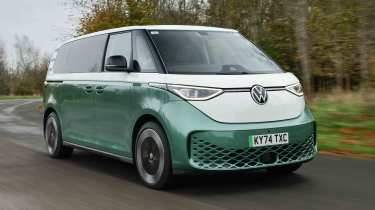
- Price from £59,645
- Best car for style
It took Volkswagen a very, very long time, but in 2022 the brand finally launched its spiritual successor to the classic microbus, the ID. Buzz.
Then, in 2024, it got the seven-seat variant the Buzz had surely been crying out for since the start, making this a proper bells ‘n’ whistles electric multi-purpose vehicle, and easily the most stylish one on the market – arguably one of the most stylish (or at least most fashionable) modern cars full stop. It gets seven proper seats, with room for all, and they slide and fold for extra utility.
Seven-seat ‘LWB’ models aren’t quite as efficient as their shorter counterparts, and the Buzz was already borderline for true road-tripping since all models fall short of 300 miles on a charge – you’ll go a lot further for longer in a less stylish Volkswagen Multivan. Officially, 239 miles is the maximum.
All get a decent whack of power so straight-line performance isn’t an issue; 0-62mph takes a snip under eight seconds, plenty for a big brick like this. And it’s fun too, if not for sports car handling more the joy of staring out of its glassy, colourfully-trimmed cabin. The high price hampers its appeal though, at nearly £60,000 for the seven-seat ID. Buzz Life.
“If you can stomach the high asking price, then the ID.Buzz is a characterful family car that will have buyers thinking twice about choosing an SUV to fit the same brief.” – Dean Gibson, senior road test editor, road tested the ID.Buzz in the UK.
Direct competitors for the ID.Buzz don’t really exist; who else offers a seven-seat electric MPV with a modern take on 1950s styling? But even choosing equivalents is difficult, since the VW’s pricing puts it around £20k more than electric versions of the Citroen Berlingo and its platform-mates. Big electric SUVs like the Kia EV9 meanwhile don’t have the Buzz’s van-like utility.
Latest Volkswagen ID. Buzz deals
8. Nissan X-Trail
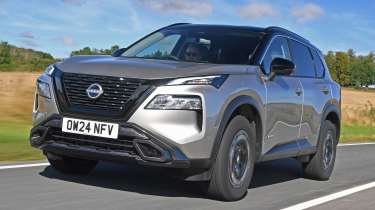
- Price from £36,225
- Best car for logical controls
The latest Nissan X-Trail is the best yet, delivering more passenger space and better cabin quality than its predecessor.
The entry-level mild-hybrid and range-topping all-wheel-drive e-4orce versions of the X-Trail come with five seats as standard, but are available with seven seats at an extra cost. Even so, only kids will really feel comfortable in the back row, because of the limited knee and headroom. The 585-litre boot is pretty decent however, and the X-Trail’s dashboard layout feels blissfully simple compared to some rivals.
Nissan’s e-Power hybrid setup brings EV-like smoothness and performance without the range anxiety, although at just shy of 50mpg, it’s not as efficient as some of the other hybrids on this list. The 1.5-litre arrangement provides 201bhp, so 0-62mph takes a brisk eight seconds in front-drive form; an ‘e-4ORCE’ all-wheel drive is also available.
It’s comfortable out on the road, with the suspension only really troubled by the worst of the UK’s pockmarked routes. It doesn’t protest on B-roads either, leaning a little in corners but otherwise feeling composed, and on the motorway it does a good job of keeping out engine, road and wind noise, making it an accomplished cruiser.
“Family car buyers will be pleased to know there have been some big improvements to the Nissan X-Trail SUV, delivering more passenger space, better cabin quality and a more extensive list of standard safety features.” - Ellis Hyde, news reporter, road tested the X-Trail in the UK
You’ll find worthy alternatives to the X-Trail elsewhere on this page, as the Skoda Kodiaq, Hyundai Santa Fe, and Peugeot 5008 are all seven-seat SUVs that compete in the same class as the X-Trail. Incidentally, we like all of them a little more than the Nissan, mostly for their extra space. For five-seaters, the new Dacia Bigster is well worth a look, undercutting the X-Trail by a whopping margin on price.
9. Land Rover Defender
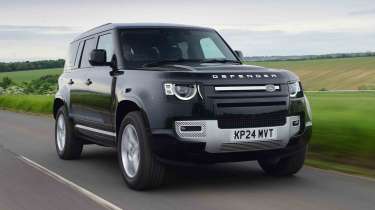
- Price from £65,755
- Best car for all-terrain use
In the blink of an eye, the Land Rover Defender has gone from a utilitarian workhorse to one of the best premium SUVs on the market.
The Defender is available in three forms: the three-door 90, the 110 model that offers seating for up to seven people, and the even larger 130 which offers space for up to eight occupants. In Defender 110s fitted with seven seats, the middle row provides ample space and can slide forward to make the third row passable for taller children, if not adults. There are cup-holders, power outlets and air vents for all, while the 231-litre boot with three rows in place expands to a van-rivalling 2,233 litres if you fold down the rear seats.
Its charming boxy style will win over many buyers’ hearts, but so will the way it drives. Four- and six-cylinder diesels offer passable economy in the low to mid 30mpg range, while the plug-in hybrid P300e gets you 27 miles of EV range.
It’s pretty imperious on the road. Big, too. Really big in fact, enough that you’ll struggle with some width restrictors, and may have to rule out car parks with height restrictions. But in its element (the bigger the road the better, or ideally, no road at all) it’s satisfying, relaxed, and capable.
“The Defender had big shoes to fill in replacing a genuine automotive legend, but quickly silenced the doubters and proved itself worthy of the famous name.” – Alastair Crooks, senior news reporter, drove the Defender in the UK
Big, boxy SUVs aren’t actually that hard to find: think Mercedes-Benz G-Class, Ineos Grenadier, and Toyota Land Cruiser, though of those only the Toyota offers a seven-seat layout. Land Rover’s own Discovery, the Volvo XC90, and the BMW X7 below are all options, though.
Latest Land Rover Defender deals
10. BMW X7
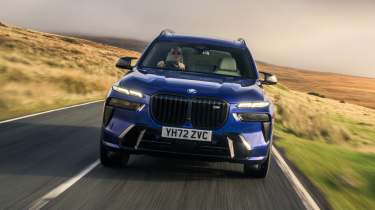
- Price from £92,160
- Best driving experience
There’s a common belief that family cars are pretty boring to drive, but the BMW X7 smashes this theory to pieces and still ticks the practicality box, too.
At more than 5.1 metres long, space isn’t really an issue, and while the rearmost seats aren’t going to trouble proper MPVs for room, they’re better than several others here for space. And luxury, aided by plenty of glass, so those in the middle and rear rows won’t feel hemmed in as they do in some seven-seaters. BMW’s current cabins are beautifully built, too.
With no EV model the X7 immediately rules itself out as a company car through huge tax bills (you’ll want the smaller, five-seat BMW iX for that) but private buyers will appreciate 36.2mpg economy from the xDrive40d with its six-cylinder diesel.
Four-wheel steering helps offset the car’s size so it’s not as intimidating as you might expect, even in town – at least for the driver. Air springs help the ride quality but it won’t challenge a Range Rover for plushness, as BMW hasn’t quite managed to hide the thumping effect of its enormous alloy wheels. As two-tonne SUVs go, it handles decently, and even the ‘entry level’ 40i petrol launches you to 62mph in under six seconds. The 523bhp M60i is overkill, as is its £117k price.
“The BMW X7’s blend of quality, luxury, high-tech equipment and superb refinement make it a compelling option – if you can get your head around its looks.” – Jordan Katsianis, senior staff writer, drove the X7 in the UK.
Premium rivals for the X7 include the Mercedes-Benz GLS, Audi Q7, Land Rover Discovery, and Volvo XC90, while the Land Rover Defender is also worth a look (and with some of these models, you’ll be able to opt for a higher specification before you match the X7’s high starting price).
Buy a car with Auto Express. Our nationwide dealer network has some fantastic cars on offer right now with new, used and leasing deals to choose from...

